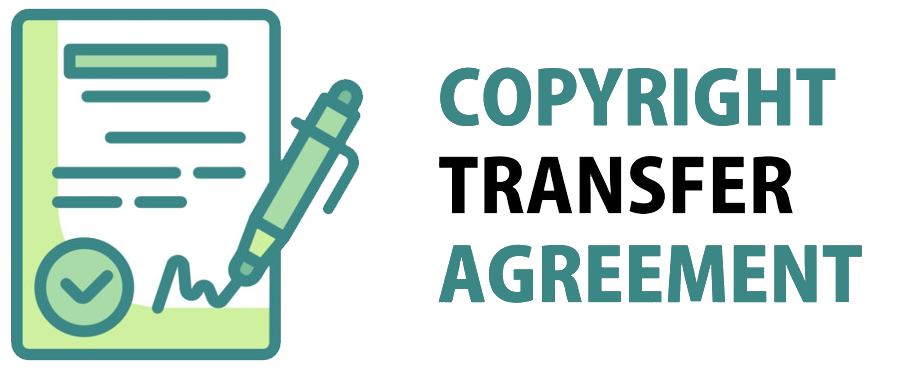Determinants to Credit Decision of Low-Income Muslim During Pandemic Crisis
Abstract
Keywords
Full Text:
PDFReferences
Arifin, A. Z. (2017). the Affect of Financial Atittude, Locus of Control and Income on Financial Behavior. International Conference on Economic, Business, and Accounting, XX(3A), 635–648.
Bacha, S., & Azouzi, M. A. (2019). How gender and emotions bias the credit decision-making in banking firms. Journal of Behavioral and Experimental Finance, 22, 183–191. https://doi.org/10.1016/j.jbef.2019.03.004
Budiono, E. (2020). Analisis Financial Knowledge, Financial Attitude, Income, Locus of Control, Financial Management Behavior Masyarakat Kota Kediri. Jurnal Ilmu Manajemen (JIM), 8(1), 284–295.
Çera, G., Khan, K. A., Mlouk, A., & Brabenec, T. (2020). Improving financial capability: the mediating role of financial behaviour. Economic Research-Ekonomska Istrazivanja . https://doi.org/10.1080/1331677X.2020.1820362
Chen, H., & Volpe, R. P. (1998). An analysis of financial literacy among college students. Financial Services Review. An Analysis of Fi-Nancial Literacy among College Students. Finan-Cial Services Review.
Chien, Y. I. W., & Devaney, S. A. (2001). The effects of credit attitude and socioeconomic factors on credit card and installment debt. Journal of Consumer Affairs, 35(1). https://doi.org/10.1111/j.1745-6606.2001.tb00107.x
Cobb-Clark, D. A., Kassenboehmer, S. C., & Sinning, M. G. (2016). Locus of control and savings. Journal of Banking and Finance. https://doi.org/10.1016/j.jbankfin.2016.06.013
Dew, J., & Xiao, J. J. (2011). The financial management behavior scale: Development and validation. Journal of Financial Counseling and Planning.
Diepstraten, M., & van der Cruijsen, C. (2019). To stay or go? Consumer bank switching behaviour after government interventions. Journal of Banking and Finance, 106, 16–33. https://doi.org/10.1016/j.jbankfin.2019.05.023
Fisher, I. (1930). The Theory of Interest: As Determined by Impatience o.
Fred van Raaij, W. (2016). Understanding consumer financial behavior: Money management in an age of financial illiteracy. In Understanding Consumer Financial Behavior: Money Management in an Age of Financial Illiteracy. Palgrave Macmillan. https://doi.org/10.1057/9781137544254
Hair, J. F., Hult, G. T. M., Ringle, C. M., & Sarstedt, M. (2013a). A Primer on Partial Least Squares Structural Equation Modeling (PLS-SEM). Thousand Oaks. Sage, 165.
Hair, J. F., Hult, G. T. M., Ringle, C. M., & Sarstedt, M. (2013b). A Primer on Partial Least Squares Structural Equation Modeling (PLS-SEM). Thousand Oaks. Sage, 165.
Hair, J. F., Matthews, L. M., Matthews, R. L., & Sarstedt, M. (2017). PLS-SEM or CB-SEM: updated guidelines on which method to use “PLS-SEM or CB-SEM: updated guidelines on which method to use.” In Organizational Research Methods, MIS Quarterly, and International Journal (Vol. 1, Issue 2).
Lusardi, A., & Mitchell, O. S. (2013). The economic importance of financial literacy. Journal of Economic Literature.
Malik, F. A., Yadav, D. K., Adam, H., & Omrane, A. (2020). The Urban Poor and Their Financial Behavior. In Sustainable Entrepreneurship, Renewable Energy-Based Projects, and Digitalization. https://doi.org/10.1201/9781003097921-17
Mandell, L., & Klein, L. S. (2009). The impact of financial literacy education on subsequent financial behavior. Journal of Financial Counseling and Planning.
Moga Dass, T., & Fazli Sabri, M. (2017). The Financial Status and Factors Affecting Personal Well-¬‐Being Among Urban Poor in Kuala Lumpur. Malaysian Journal of Social Sciences and Humanities.
Mudzingiri, C., Muteba Mwamba, J. W., & Keyser, J. N. (2018). Financial behavior, confidence, risk preferences and financial literacy of university students. Cogent Economics and Finance. https://doi.org/10.1080/23322039.2018.1512366
Ongena, S., & Popov, A. (2015). Gender bias and credit access.
Paulus, M. P., & Yu, A. J. (2012). Emotion and decision-making: Affect-driven belief systems in anxiety and depression. In Trends in Cognitive Sciences (Vol. 16, Issue 9, pp. 476–483). Elsevier Ltd. https://doi.org/10.1016/j.tics.2012.07.009
Pradita, N., Damayanti, T. W., & Supramono, S. (2018). The Decision to Apply for Bank Credits: A Preliminary Investigation of MSME Herding Behavior from Indonesia.
Rousseau, G. G., & Venter, D. J. (2019). Financial insight and behaviour of household consumers in Port Elizabeth. Southern African Business Review, 20(1). https://doi.org/10.25159/1998-8125/6052
Shiller, R. J. (2000). Irrational Exuberance.
Silaya, M. A. (2022). Aspects Of Bias In Credit Decisions For Employees Of The Mollucan Christian University Of Indonesian. Journal of Positive School Psychology, 2022(7), 2839–2847. http://journalppw.com
Susanto, S. A., & Anastasia, N. (2019). Herding Behavior and Decision-Making within the Middle – Class Residential Property Investments. Jurnal Akuntansi Dan Keuangan, 21(2), 90–100. https://doi.org/10.9744/jak.21.2.90-100
Swastika, P. (2020). Do Social Role-Based Strategies Matter For Gen-Y Customers? The Case Of Indonesian Islamic Banks. Al-Iqtishad: Jurnal Ilmu Ekonomi Syariah, 12(1).
Thi, N., Mien, N., & Thao, T. P. (2015). Factors Affecting Personal Financial Management Behaviors: Evidence from Vietnam. Economics, Finance and Social Sciences.
Veblen, T. (1899). The Theory of the Leisure Class.
Wong, K. K. K.-K. (2013a). 28/05 - Partial Least Squares Structural Equation Modeling (PLS-SEM) Techniques Using SmartPLS. Marketing Bulletin, 24(1), 1–32.
Wong, K. K. K.-K. (2013b). 28/05 - Partial Least Squares Structural Equation Modeling (PLS-SEM) Techniques Using SmartPLS. Marketing Bulletin, 24(1), 1–32.
Yap, R. J. C., Komalasari, F., & Hadiansah, I. (2018). The Effect of Financial Literacy and Attitude on Financial Management Behavior and Satisfaction. Bisnis & Birokrasi Journal. https://doi.org/10.20476/jbb.v23i3.9175
Yong, C. C., Yew, S. Y., & Wee, C. K. (2018). Financial knowledge, attitude and behaviour of young working adults in Malaysia. Institutions and Economies.
DOI: http://dx.doi.org/10.22441/jiess.2022.v3i2.004
Refbacks
- There are currently no refbacks.
Copyright (c) 2022 Journal of Islamic Economics and Social Science (JIESS)

This work is licensed under a Creative Commons Attribution-ShareAlike 4.0 International License.
Journal of Islamic Economics and Social Science (JIESS)
|
|
Print ISSN: 2722-7499 |
|---|---|
| Online ISSN: 2722-7111 |

This work is licensed under a Creative Commons Attribution-ShareAlike 4.0 International License.
Editorial Team Office
Journal of Islamic Economics and Social Science (JIESS)
Ikatan Ahli Ekonomi Islam (IAEI)
Komisariat: Universitas Mercu Buana
Faculty of Economic and Business Building
Jl. Raya Meruya Selatan, Kembangan, Jakarta-11650
Telp.021-5840816 Ext. 5342, Fax. 021-5871312
Email: [email protected].
Website: http://publikasi.mercubuana.ac.id/index.php/jiess



















